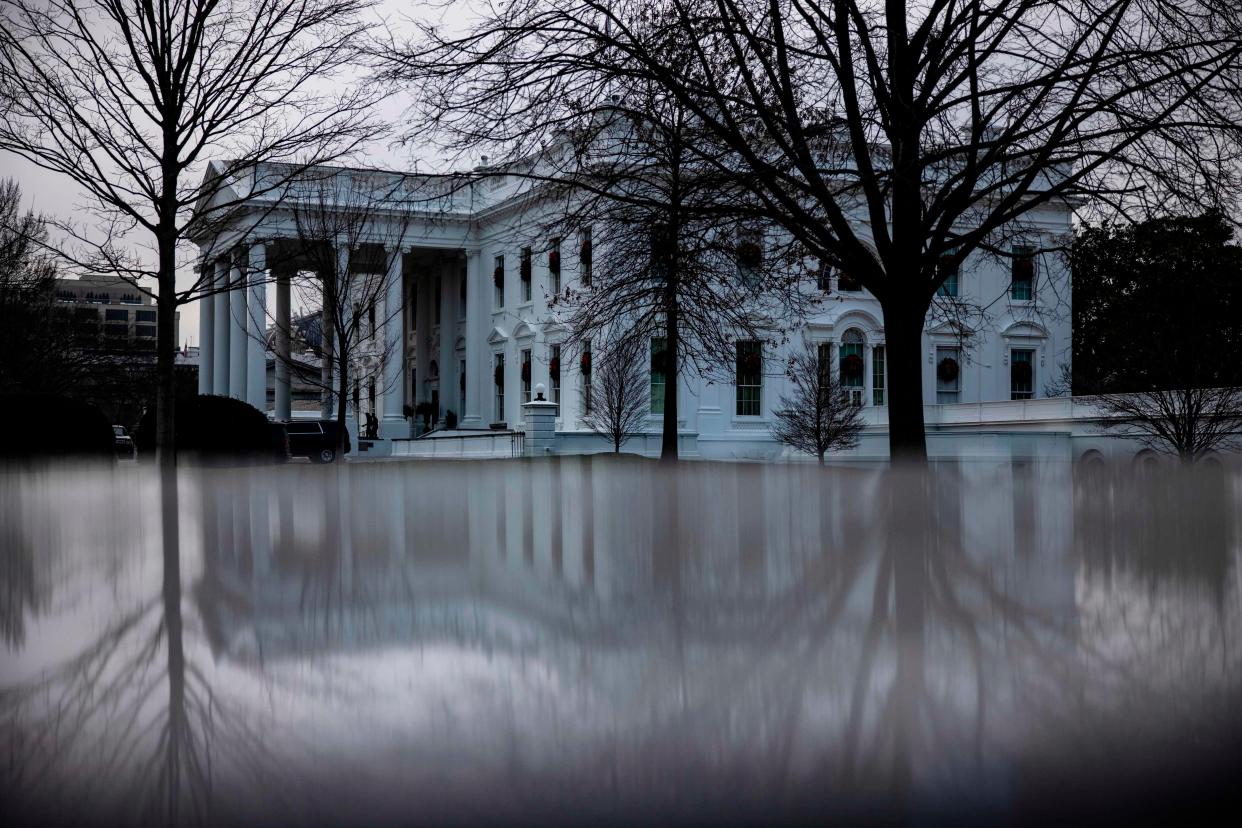Spying on his own counsel: The making of the Trump surveillance state and Don McGahn

Three years after the fact, we learn that in 2018, the Justice Department issued secret subpoenas for communication records of President Donald Trump’s own White House counsel, Don McGahn. That report followed earlier stories this month that prosecutors had issued similar subpoenas for Apple and Microsoft “metadata” on multiple news reporters and Democratic Reps. Adam Schiff and Eric Swalwell.
In other words, the secret information gathering extended to perceived outside “enemies” or disloyal members of the administration, Democrat or Republican, like McGahn. And that is just what we now know about the perceived foes investigated in 2018. We have not learned what surveillance may have been done as Trump’s vilification of opponents accelerated in 2019 and 2020.
Trump treats White House employees like enemies
The dangers are impossible to exaggerate.
Metadata is everything about a phone or email communication other than its content – for example, the recipient’s name and address, the time and date of the communication, and any follow-up interactions between sender and receiver. By collecting the data, as New York Times editors have explained, “the government can discover intimate details about a person’s lifestyle and beliefs – political leanings and associations, medical issues, sexual orientation, habits of religious worship, and even marital infidelities.”
Shades of the 20th century’s infamous, long-serving FBI Director J. Edgar Hoover, who “persecuted political enemies (and) blackmailed politicians."
Free the Press: Justice subpoenas are bad enough, but government has other ways to go after journalists
And the danger runs to all of us in the Information Age. As Daniel Solove, a George Washington University Law School privacy expert has written, “an increasing amount of personal information is contained in records maintained by Internet Service Providers (ISPs), phone companies ... employers and private sector entities.”
Solove points out that, when this kind of data flows to the government via law enforcement, the clear and present risk is the “creep toward a totalitarian state (that can) chill democratic activities.” When a president mobilizes the power of the Justice Department to gather such private data, we face what Privacy International calls the "surveillance state."
The recent news accounts of the Trump Justice Department’s secret subpoenas have included speculation about the administration’s motivations. To date, one established fact about former White House counsel Don McGahn seems forgotten in the mix: An event that provides a retaliatory motive for the February 2018 McGahn subpoena.
That same month, Trump had White House staff secretary Rob Porter ask McGahn to write a memo falsely denying a news story that Trump had instructed McGahn to have Mueller fired. McGahn refused this request to fabricate evidence. The episode was the centerpiece of the Mueller report’s evidence of Trump’s obstructing justice.
Thus, though reports suggest that the gag orders that the DOJ obtained to keep the subpoenas secret were based on “national security” claims, it looks to have been Trump’s security being protected in McGahn’s case. Trump would surely have enjoyed discovering any compromising information about McGahn in order to force his compliance, or to tarnish his credibility in the public mind.
Of course, the full facts have yet to emerge, and former Attorney General William Barr, in a carefully parsed statement, has distanced himself, saying he does not recall being briefed on the subpoenas of Democratic congressional representatives.
Barr (allegedly) unaware of subpoenas
The notion that he was not informed of the subpoenas strains credulity. Anyone who, like me, worked in a public law office with a public figure heading it learned early to advise the official of any potential controversy that could come back to haunt him (or in my case, her).
Moreover, Barr’s purported lack of knowledge is at odds with reporting that he brought in a non-Washington prosecutor, rather than quash the investigation of Schiff and Swalwell when the subpoenas produced no leads.
Free the Press: FBI subpoena for USA TODAY records serves as chilling reminder of freedom of the press
Ioan Culianu, historian and adversary of his native Romania’s totalitarianism, described a police state as “the State which, in order to defend its own out-of-date 'culture,' does not hesitate to repress all liberties and the illusion of liberties, changing itself into a prison where all hope is lost.”
That would accurately describe the MAGA autocracy that Trump failed to implement while in the White House, but would have powerful momentum to establish if reelected in 2024.
Dennis Aftergut, a former federal prosecutor and chief assistant city attorney in San Francisco, writes on national affairs.
You can read diverse opinions from our Board of Contributors and other writers on the Opinion front page, on Twitter @usatodayopinion and in our daily Opinion newsletter. To respond to a column, submit a comment to letters@usatoday.com.
This article originally appeared on USA TODAY: Trump's surveillance of Don McGahn should alarm people

 Yahoo Movies
Yahoo Movies 
